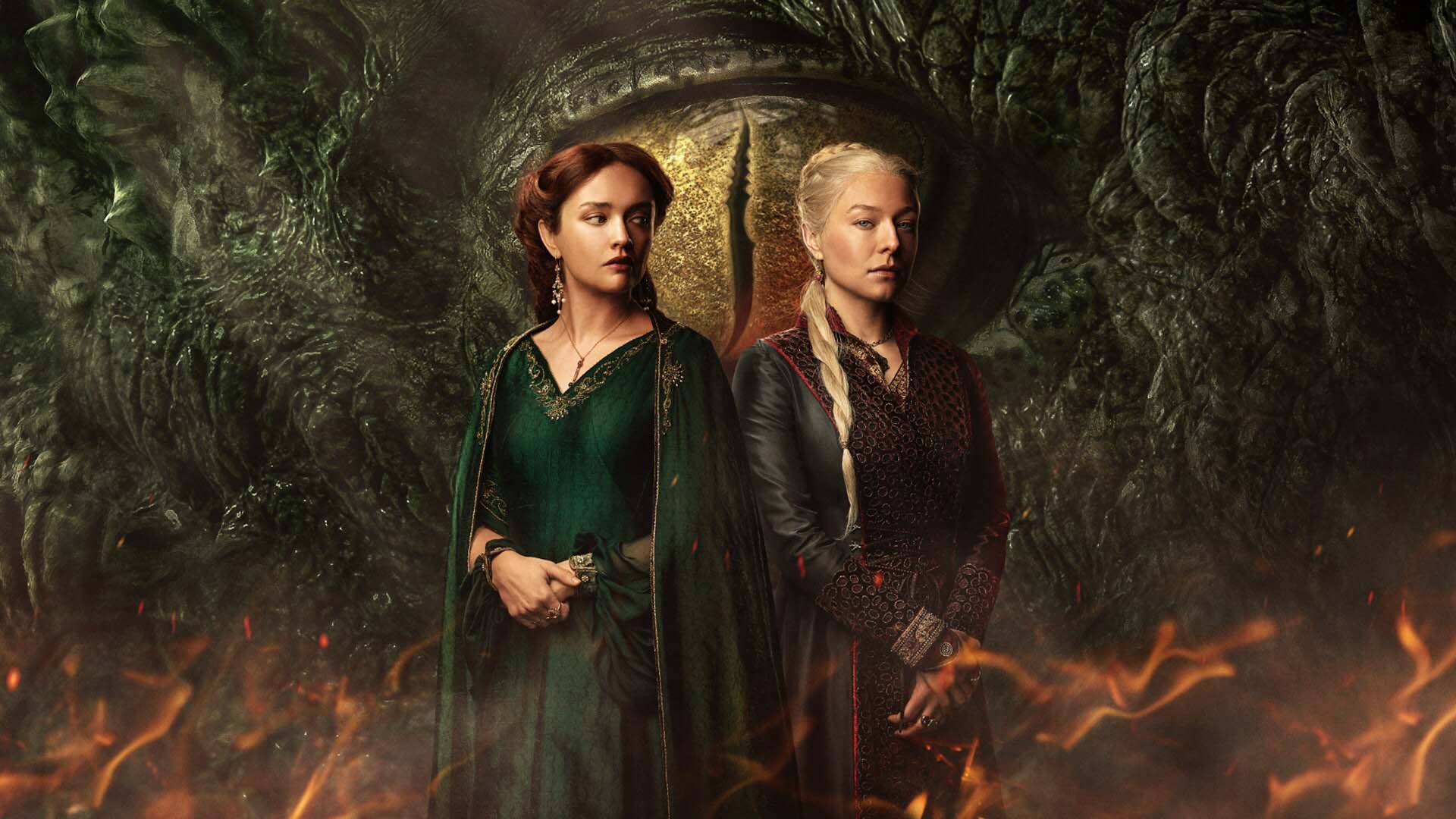[:ca]Sarah Mesle
Dear Television,
I watched House of the Dragon, but could just as easily have not watched it. While HBO’s big-budget prequel to Game of Thrones has proven to be a huge hit, successfully recapturing many of the original series’s fans, I was not terribly motivated to make my return. When Game of Thrones was airing, I’d have Sunday watch parties, and I’d write recaps for this site nearly every week, but this time around, I didn’t feel the urgency to cover it weekly, and if I threw a watch party, I’m not sure who would have showed up. None of my friends are watching.
But I did watch it, all of it, including the whiny party scene, the other whiny party scene, multiple whiny kid scenes, the leprosy sex scene, the weird bullshitty birth scenes, and the couple of really good scenes, one of which may or may not have been when a princess’s postpartum breasts started leaking milk in the middle of a small council meeting. I watched because I spent eight years being compelled and disappointed, writing thousands of words about everything I found compelling and disappointing about it, and I was curious: this new show, had it figured out what went wrong? Could House of the Dragon be not only a good heir to Game of Thrones — recognizing and fixing its mistakes, moving us forward — but also a good heir to the Game of Thrones viewing experience I so missed?
In this way, watchers of House of the Dragon are experiencing something parallel to what the characters within House of the Dragon are experiencing: a succession crisis.
Within House of the Dragon, the succession crisis has a pretty simple cause. There’s basic greed, too, but it is misogyny that is the most overt problem. The king has named a woman, his daughter Rhaenyra, heir to the throne. A lot of asshole characters with names you don’t need to care about (Otto Hightower, Tyland Lannister, see I told you) claim that “the people” won’t follow a woman, and the show seems to agree with them. If many people in Westeros are ideologically opposed to Rhaenyra’s succession because of sexism, I guess I — out here in watcher land — am ideologically in favor of it, because of feminism. But what “feminism” is it that the show offers, exactly? What can the show’s in-world treatment of women teach us about why we want to watch it, or don’t?
¤
Okay, first let’s back up for those who have been occupying their Sunday nights with something other than Westerosi politics.
Here’s a simple way to describe House of the Dragon’s story: Westeros’s king, Viserys the Peaceful of House Targaryen, is dying extremely slowly of some deeply nasty wasting disease. Imagine if Ramsey Bolton had gone after Theon with a virus and some leeches instead of a knife, and you’ll have some idea. As Viserys disturbingly, and quite literally, disintegrates over the course of 15 years, two very different women position themselves to take command of his inheritance. On the one hand, we have Viserys’s daughter and heir, Rhaenyra, who likes dragons, hunting, and having sex with the wrong people. Against Rhaenyra stands Viserys’s much younger second wife, Allicent, whose agency and appetites are so thwarted by grief and her father that her main activity in the first episodes is gnawing on her own fingernails. Rhaenyra, a Targaryen, has the family’s signature platinum braids, whereas Allicent has gorgeous brown curls and a twisted sense of responsibility, which is the kind of thing that makes you very excited if you (me) have ever read a 19th-century novel. As the season continues and both women have a bunch of children, political tensions build. Finally, at Viserys’s death, Allicent — warped appetite thoroughly reworked by religious conviction and long-suffering years of caretaking into a kind of steely strength — really commits to usurping Rhaenyra’s power once and for all, in order to put her own (blond but lame) son on the throne. She succeeds, but barely, because her son is an idiot and Rhaenyra has more dragons (and implicitly better sex). The season ends as this show’s true battle for the throne begins.
Seguir leyendo: LARB[:]



